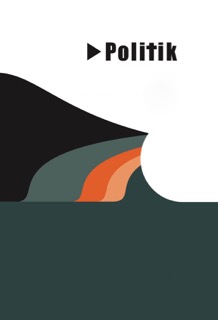Tænketankes brug af dagbladene som et marked for politiske idéer i Danmark
DOI:
https://doi.org/10.7146/politik.v19i1.27392Resumé
How has the visibility of think tanks in Danish newspapers developed in the recent decade, and how might this development be accounted for? The article shows that the ten most mentioned think tanks have become more visible in Danish newspapers in the period 2006-2015 compared to the most mentioned interest organisations. It is argued that think tanks are using the media as a means of supplying independent ideas which are in demand among decision-makers and other target audiences. In addition, the article suggests that think tanks with idea political stances are more visible in Danish newspapers than think tanks which focus on certain issues or policies.
Referencer
Arnoldi, J. (2005) Den offentlige ekspert. Frederiksberg: Samfundslitteratur.
Berry, J. M. (1997) The Interest Group Society, 3rd edition. New York: Longman.
Bertelli, A. M. & Wenger, J. B. (2009) Demanding Information: Think Tanks and the US Congress.British Journal of Political Science, 39(02), 225-242.
Binderkrantz, A. S., Christiansen, P. M. & Pedersen, H. H. (2014) Organisationer i politik. Danske interesseorganisationer i forvaltning, Folketing og medier. Hans Reitzels Forlag.
Brecht, J. (2011) Interview 22. marts.
Christiansen, P. M. & Nørgaard, A. S. (2003) Faste Forhold - Flygtige Forbindelser. Stat og interesseorganisationer i Danmark i det 20. århundrede. Gylling: Aarhus Universitetsforlag.
Cigler, A. J. & Loomis, B. A. (eds) (1998) Interest Group Politics, 5th edition. Washington D.C.: CQ Press.
Dickson, P. (1972) Think tanks. New York: Ballatine.
Edwards, L. (1997) The Power of Ideas: The Heritage Foundation at 25 Years. Jameson Books.
Fisker, H. M. (2015) Gamle venner og nye bekendtskaber: udvikling i den danske interessegruppepopulation. Politica, 47(1), 46-65.
Grant, J., Halpin, D. & Maloney, W. (2004) Defining Interests: Disambiguation and the need for new distinctions. British Journal of Politics and International Relations, 6(2), 195-212.
Henriksen, T. B. (2014) Tænketanke og professorer tryner lobbyister, Børsen. 29.12.14 2014. Available online: http://borsen.dk/nyheder/avisen/artikel/11/101448/artikel.html.
Jones, B. D. & Baumgartner, F. R. (1993) Agendas and Instability in American Politics. Chicago, United States: University of Chicago Press.
Kelstrup, J. D. (2007) Tænketanke i forandring - imellem national sikkerhed og globalt risikosamfund. Militært Tidsskrift, 136(2), 131-142.
Kelstrup, J. D. (2014) Think Tanks in Europe: Explaining their Development and Variation in Germany, the United Kingdom, Denmark and at the EU-level. PhD Roskilde University.
Kingdon, J. W. (2003) Agendas, Alternatives and Public Policies, 2nd edition. United States: Addison-Wesley Educational Publishers Inc.
Lasswell, H. D. (1971) A Pre-view of Policy Sciences. New York, United States: American Elsevier Publishing.
Løppenthin, R. (2015) Tænketanke får mindre taletid i medierne, 2015. Available online: http://www.altinget.dk/artikel/taenketanke-faar-mindre-taletid-i-medierne.
McGann et al. (2014) Global Go-To Think Tank Index Report 2013. Think tank and Civil Societies Program. University of Pennsylvania.
McGann et al., J. (2013) Global Go-To Think Tanks Index Report 2012. Think tank and Civil Societies Program
McGann, J. (2005) US think-tanks: casualties in the war of ideas, 2005. Available online: http://www.opendemocracy.net/democracy-think_tank/us_thinktanks_3137.jsp.
McGann, J. G. (2015) 2014 Global Go To Think Tank Index Report.
McGann, J. G. & Weaver, R. K. (eds) (2000) Think tanks and civil societies: catalysts for ideas and action. New Brunswick, NJ: Transaction Publishers.
Medvetz, T. (2012) Think Tanks in America. University of Chicago Press.
Parmar, I. (2013) The knowledge politics of democratic peace theory. International Politics, 50, 231-256.
Pierson, P. (1996) The New Politics of the Welfare State. World Politics, 48(2), 143-179.
Rich, A. (2004) Think tanks, public policy, and the politics of expertise. Cambridge, UK New York: Cambridge University Press.
Sartori, G. (1970) Concept Misformation in Comparative Politics. The American Political Science Review, 64(4), 1033-1053.
Shaw, S. E., Russell, J., Parsons, W. & Greenhalgh, T. (2015) The view from nowhere? How think tanks work to shape health policy. Critical Policy Studies, 9(1), 58-77.
Stone, D. (2004) Introduction: think tanks, policy advise and governance., in Stone, D. & Denham, A. (eds), Think tank traditions - policy research and the politics of ideas. Manchester: Manchester University Press.
Strøm, K. (1990) A Behavioral Theory of Competitive Political Parties. American Journal of Political Science, 34(2), 565-598.
Weaver, K. R. (1986) The Politics of Blame Avoidance. Journal of Public Policy, 6(5), 371-398.
Wildavsky, A. B. (1979) Speaking Truth to Power: The Art and Craft of Policy Analysis. Boston:Little-Brown.
Ågerup, M. (2011) Interview 6. Maj.
Downloads
Publiceret
Citation/Eksport
Nummer
Sektion
Licens
Forfattere, der publicerer deres værker via dette tidsskrift, accepterer følgende vilkår:
- Forfattere bevarer deres ophavsret og giver tidsskriftet ret til første publicering, samtidigt med at værket er omfattet af en Creative Commons Attribution-licens, der giver andre ret til at dele værket med en anerkendelse af værkets forfatter og første publicering i nærværende tidsskrift.
- Forfattere kan indgå flere separate kontraktlige aftaler om ikke-eksklusiv distribution af tidsskriftets publicerede version af værket (f.eks. sende det til et institutionslager eller udgive det i en bog), med en anerkendelse af værkets første publicering i nærværende tidsskrift.
- Forfattere har ret til og opfordres til at publicere deres værker online (f.eks. i institutionslagre eller på deres websted) forud for og under manuskriptprocessen, da dette kan føre til produktive udvekslinger, samt tidligere og større citater fra publicerede værker (se The Effect of Open Access).

